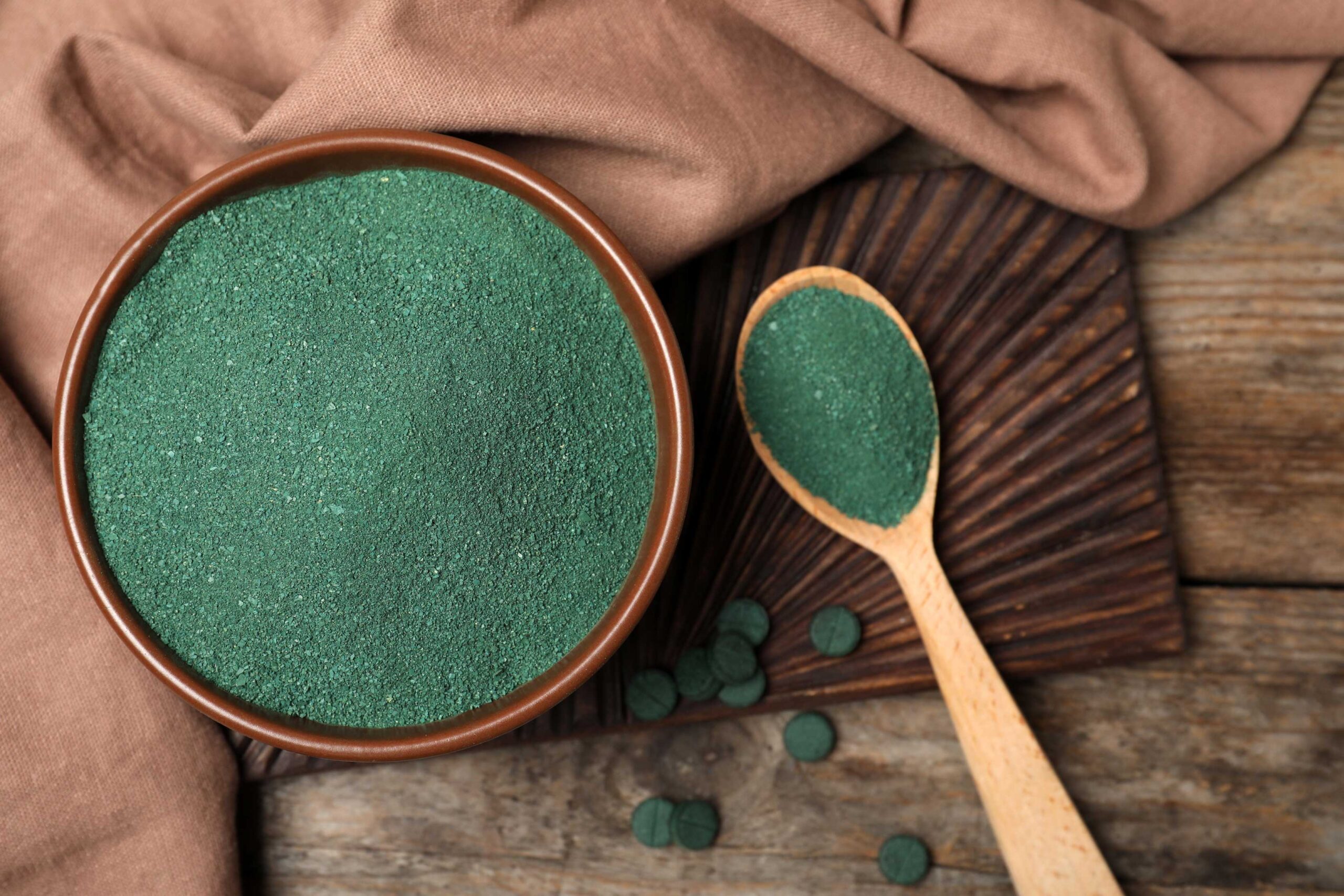Spirulina: A Nutritional Powerhouse
Spirulina, a type of blue-green algae, has gained significant attention in the health and wellness world. With a rich nutritional profile and numerous antioxidants, this superfood has been praised for supporting heart health, reducing inflammation, and potentially protecting against cancer. Let’s delve into the extensive research surrounding spirulina and explore its potential benefits for various aspects of health, including cardiovascular health, gut health, immune function, and more.
What is Spirulina?
Spirulina, derived from a blue-green algae plant found in oceans and salty lakes, is often sold as a powder or tablet supplement. It is considered one of the oldest plants on Earth, with a history dating back to ancient Aztec civilizations. Spirulina is renowned for its high nutritional value, containing essential nutrients such as protein, iron, potassium, and vitamin C. The United States Food and Drug Administration (FDA) recognizes spirulina as “generally recognized as safe” and approves its use as a colorant in various food products1.
The Antioxidant Powerhouse
One of the key reasons for spirulina’s popularity is its high antioxidant content. Antioxidants play a crucial role in reducing inflammation and protecting against chronic diseases. Spirulina contains various antioxidant compounds, including phycocyanin, which gives it its distinctive dark blue-green color. Studies have shown that phycocyanin possesses anti-inflammatory properties, protects against oxidative stress, and even exhibits neuroprotective qualities. These antioxidant properties make spirulina a valuable addition to any diet2.
Promoting Heart Health
Spirulina may have beneficial effects on heart health. Its anti-inflammatory properties have been shown to improve blood cholesterol levels, reducing LDL (“bad”) cholesterol and increasing HDL (“good”) cholesterol. In addition, spirulina’s antioxidant compounds help prevent damage to fatty compounds like cholesterol, potentially reducing the risk of heart disease. Studies have also indicated that spirulina can help lower blood pressure, making it a promising natural option for managing hypertension3.
Supporting Gut Health
While research on spirulina’s impact on gut health is still limited, preliminary studies have shown promising results. Spirulina exhibits prebiotic properties, meaning it provides nourishment for beneficial gut bacteria. This can help maintain a healthy gastrointestinal microbiome, essential for overall gut health.
The Potential Cancer Fighter
Spirulina’s potential as a cancer-fighting agent has been explored in animal studies. These studies suggest that spirulina supplementation may help protect against cancer by activating immune cells called natural killer cells, which play a crucial role in defending against tumor growth. Although more human trials are needed, the results are promising and highlight the potential of spirulina as a preventive measure against cancer4.
Alleviating Allergies and Inflammation
For those suffering from allergies, spirulina may provide some relief. Studies have shown that regular use of spirulina can help reduce inflammation in nasal airways, alleviating symptoms of allergic rhinitis or hay fever. This is particularly beneficial for those who prefer a more holistic approach to managing their allergy symptoms or have difficulty tolerating traditional allergy medications5.
Enhancing Immune Function
Spirulina is rich in vitamins and minerals essential for maintaining a healthy immune system, such as vitamin C. Research has shown that spirulina can increase the production of white blood cells and antibodies, enhancing the body’s ability to fight viruses and bacteria. Laboratory studies have demonstrated spirulina’s potential in fighting against viruses such as herpes, flu, and HIV, although more research is needed to confirm these effects in humans6.
Additional Health Benefits and Considerations
Spirulina offers a range of other potential health benefits, including weight loss support, improved muscle strength, and dental health. Studies have shown that spirulina can aid in weight loss by reducing body fat percentage and waist circumference. It has also been found to enhance muscle strength and endurance, making it a beneficial supplement for athletes. Furthermore, spirulina’s antimicrobial and antibacterial properties have been demonstrated to improve dental health by reducing dental plaque and the risk of gingivitis.
However, it is important to note that spirulina may not be suitable for everyone. Individuals with phenylketonuria (PKU) or autoimmune conditions should avoid spirulina due to its phenylalanine content and potential to worsen symptoms. Pregnant or breastfeeding women, individuals with compromised immune systems, and those taking prescription medications should consult their healthcare provider before incorporating spirulina into their diet7.
With its impressive nutritional profile and potential health benefits, Spirulina has established itself as a nutritional powerhouse. From its antioxidant properties to its potential to promote heart health, support gut health, and even potentially protect against cancer, spirulina offers many advantages. As with any dietary supplement, it is essential to consult with a healthcare professional before incorporating spirulina into your routine to ensure its suitability for your individual needs. Spirulina can be a valuable addition to a well-rounded, healthy diet with proper guidance and consideration.
Contact your sales rep. or email us at sales@vitajoyusa.com to take advantage of special pricing.
**These statements have not been evaluated by the FDA. This product is not intended to diagnose, treat, cure, or prevent any disease.
References:
- 10 Health Benefits of Spirulina, https://www.healthline.com/nutrition/10-proven-benefits-of-spirulina.
- Spirulina: Are There Health Benefits? https://www.webmd.com/diet/spirulina-health-benefits.
- 12 Health Benefits of Spirulina, According To Experts, https://www.forbes.com/health/body/health-benefits-of-spirulina/.
- What Is Spirulina And Why Is It So Good For You, https://health.clevelandclinic.org/spirulina-superfood-youve-never-heard/.
- Top 5 Health Benefits Of Spirulina, https://www.bbcgoodfood.com/howto/guide/health-benefits-spirulina.
- Spirulina, https://www.mountsinai.org/health-library/supplement/spirulina.
- 6 Spirulina Health Benefits, https://www.realsimple.com/health/nutrition-diet/healthy-eating/spirulina-health-benefits.
